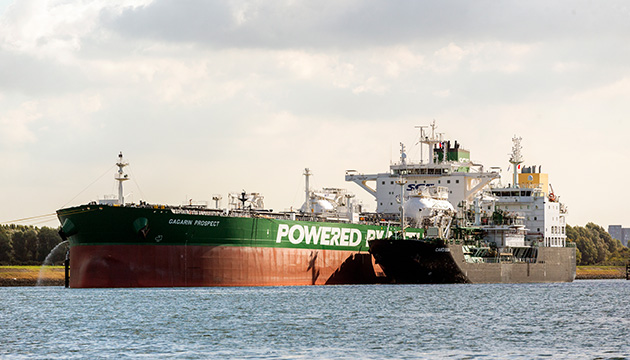Natural gas
Natural gas – the cleanest-burning hydrocarbon – comprises about half of Shell’s total production and is key to our aim to provide more and cleaner energy. Using natural gas for power generation, for example, can play a key role in developing a cleaner global energy system.
Gas is one of the few energy sources that can be used across all sectors of the global economy. It can be used to generate electricity, provide heat for essential industrial processes and homes, as well as fuel for heavy-duty road transport, shipping and rail. Natural gas emits between 45% and 55% less greenhouse gas emissions than coal when used to generate electricity, according to the International Energy Agency.
Gas can also act as a partner for intermittent renewable energy, such as solar and wind, by helping to maintain a steady supply of electricity, because gas-fired plants can start and stop relatively quickly.
Meeting demand for LNG
As one of the industry leaders in liquefied natural gas (LNG), we sell LNG to customers in over 25 countries.
Natural gas
We provide 3% of the world’s natural gas
LNG shipping
We manage one of the world’s largest fleets of LNG carriers
In 2018, we took a final investment decision with our joint venture partners on the LNG Canada project, which is now being built. The project will improve the availability and affordability of natural gas for Asian markets. LNG Canada is projected to have one of the lowest greenhouse gas emission profiles for a project of its kind, in part because of the decision to use hydro-electric power at the site.

The Cardissa LNG bunker vessel refuels the Gagarin Prospect tanker at the Gate terminal in Rotterdam, the Netherlands.
LNG can also be used as a fuel for heavy-duty transport and burns more cleanly than diesel. In the shipping industry alone in 2018, there were around 200 sea-going vessels powered by LNG. The International Maritime Organization has agreed to limit sulphur oxide and nitrogen oxide emissions from all ships from January 2020. LNG fuel can help ship operators reduce emissions.
 Our people
Our people
 Sustainable development goals
Sustainable development goals
 About our data
About our data
 Electricity
Electricity